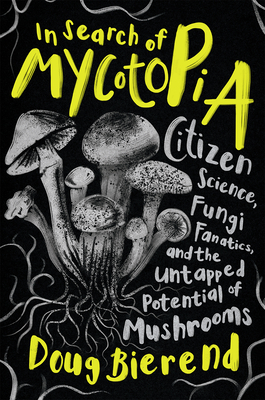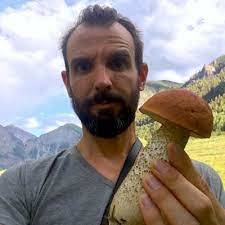What do you think?
Rate this book


336 pages, Hardcover
Published March 10, 2021


"Within this expanding circuit of fungus-focused skills sharing and knowledge exchange, a certain subversive strain of subculture is also emerging, one that takes up fungi as part of an effort to dissolve the petrified stumps of patriarchy and colonialism, and establish in their place priorities of biocentrism and universal enfranchisement in science, food, and medicine..."
"...Legacy institutions and perspectives alike stand in the way of realizing a sustainable, equitable society..."
"...Some of the work and worldviews I document in this book take up fungi as allies in challenging patriarchy, colonialism, capitalism, various extractive or supremacist worldviews that ignore the agency and interconnectedness of nature..."